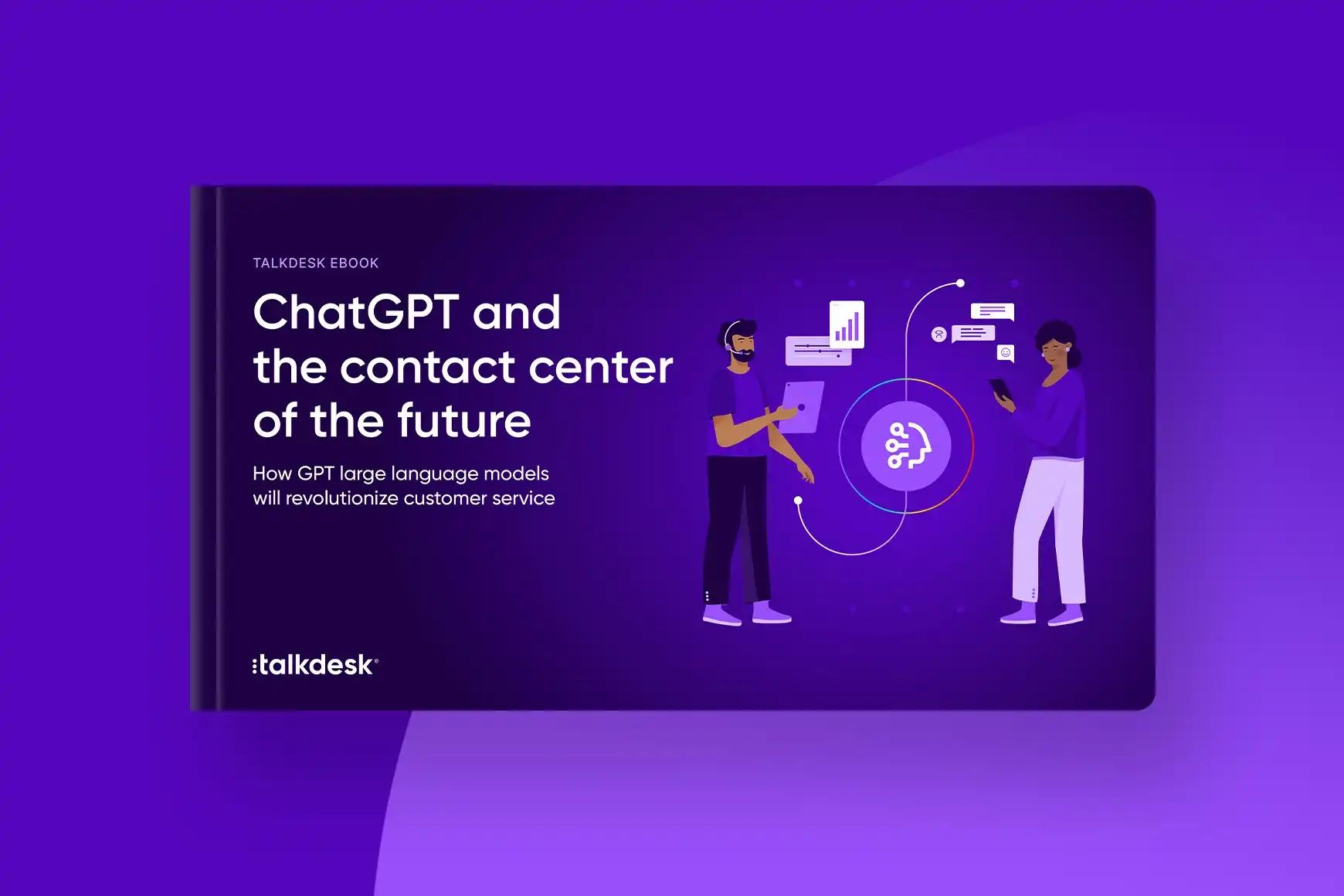11 steps to help reduce agent attrition in call centers

By Celia Cerdeira
0 min read

Contact center turnover rates are a significant challenge for companies, impacting operational efficiency with unfilled positions, soaring costs, and low team morale—not to mention providing subpar customer experiences. Analyzing the reasons for contact center attrition is key to fostering a stable, engaged, and committed workforce.
Rethinking operational strategies and prioritizing employee satisfaction allows contact centers to become a hub of productivity and positivity. Taking care of your agents’ needs allows you to reduce attrition and enhance the customer experience.
Why are there such high attrition rates in contact centers?
Attrition is when workers leave a company and their jobs stay empty. If more people leave than come, the hiring process can become long and expensive. But why do so many people leave contact centers?
There are several reasons:
- Stress. Agents at contact centers often have to deal with angry customers and lots of interactions. This can make their job very stressful.
- Too many systems to handle. In one interaction, agents must use many different systems. This makes their job harder and adds pressure.
- Boring work. The job is often repetitive and doesn’t offer chances to move up in the career. This can make it feel boring and unexciting.
- Not enough training. If agents don’t get proper training, they may feel unprepared for their tasks. This can make them frustrated and unhappy.
- No control over problems. If agents can’t decide to solve issues, they may feel trapped and unimportant.
- No appreciation. If agents don’t feel appreciated or recognized for their work, they might have low morale and want to leave.
- Low pay. If everything else about a job is great, but an agent can’t make ends meet on its pay, that agent won’t stick around long.
It’s important to improve employee retention rates so you can save money and enhance business performance.
Finding signs of disengagement in agents.
When an employee’s performance starts to dip, it might be a sign they’re losing interest in their job. Signs like lower team productivity, missed deadlines, or less interaction with colleagues could mean they’re considering leaving.
The problem is that once an employee checks out mentally, it’s hard to convince them to stay. That’s why it’s crucial to understand their feedback and use it to improve things for the rest of the team.
But how can you spot these signs early? Artificial intelligence (AI) tools like Talkdesk Workforce Management™ can help detect when agent productivity levels decrease. These AI-powered tools analyze patterns in agent behavior and flag potential issues before they lead to burnout.
The cost/impact of agent attrition.
Agent attrition has an enormous impact on contact centers. The overall cost of losing one contact center agent can be anywhere from 100% to 300% of the agent’s salary. With an average turnover rate of 38% for contact centers, managers must take measures to reduce agent attrition rates and streamline the hiring and onboarding process.
It’s impossible to eliminate attrition, but finding ways to reduce employee dissatisfaction can greatly impact the success of your business. This is why we’ve put together a list of 11 steps to help reduce contact center agent attrition.
1. Provide AI-powered software and tools.
Teams that use innovative contact center software and applications are more effective and efficient than those that do not. Giving your agents software that is easy to learn and use allows them to start working quicker and be better at what they do. This will also increase the agent’s satisfaction with their work and the likelihood that they will stay with your company longer.
Several AI-powered tools further enhance agent experience:
Talkdesk Agent Assist: Personalized AI-powered assistant that supports agents throughout every conversation. It listens, learns, and assists providing real-time guidance during customer interactions. With Talkdesk Agent Assist, agents can feel supported and empowered to make informed decisions, leading to improved customer service and overall job satisfaction.
Talkdesk Knowledge Base Management: This tool leverages AI to provide immediate access to the information agents need to answer customer queries. The AI-driven system sifts through vast amounts of data to find relevant information, helping agents resolve issues faster and with greater accuracy.
Automatic summary: Reducing after-call work (ACW) is another way to enhance agent productivity. The automatic summary feature summarizes interactions automatically. This allows agents to focus more on customer interactions rather than administrative tasks, enabling them to handle more calls and deliver better service.
These tools not only equip agents with the necessary resources to perform their jobs effectively but also contribute to a more rewarding work experience, reducing attrition rates in contact centers.
2. Optimize recruiting and hiring.
Reducing agent attrition starts with hiring the right agents for your team. You can increase the quality of your applicants through implementing a referral program as well as allowing agents to work from home. When hiring, consider personality, communication skills, cultural fit, team-oriented attitudes, and the skills of the applicant. Be sure to clearly define job roles, common tasks, and performance expectations so your applicant will know what is expected of them, and can opt out of the job if it is not a good fit.
3. Enhance training programs.
Contact center managers know that some agents need more training than others. However, skipping or shortening the training period means you could be omitting very useful experiences for the agent which can result in feelings of exclusion, inadequacy, and disorganization, which ultimately will result in the agent leaving your company. It is important that each agent goes through the same training period so they can acquire the necessary knowledge and skills, become acculturated to the company’s values, and cultivate relationships with colleagues. This training period will enhance team collaboration and bonding, both of which will contribute to the agents feeling as if they are vital members of the team.
4. Improve customer satisfaction monitoring.
The most effective contact center agents are typically the ones who make a personalized connection with their callers and derive the most satisfaction from their jobs. It is essential that customer-centric metrics such as customer satisfaction and first contact resolution are monitored and enhanced and that quantitative metrics such as average handle time or calls per hour are not overvalued. This will significantly reduce stress in the contact center and increase the length of time that the agent stays with your company.
5. Establish clear communication channels.
It is important that contact center agents have clearly defined expectations, that they receive feedback based on these expectations, and that they know who to talk with when they have an issue or concern. Agents should also be involved in business decisions, informed about company goals and strategies, and be polled about their experience working in the company. Agents can be a key source of new ideas and can drive new changes if they are fully involved in the process and their voices are heard. Establishing clear communication channels and including agents in decision-making processes will make them feel more empowered and more invested in your company.
6. Enhance recognition and rewards programs.
Managers should go to great lengths to ensure that each agent receives feedback that is directly tied to their performance and that they receive rewards when they meet key milestones or performance metrics. They should also implement peer recognition and rewards programs for employees. This will enhance an agent’s motivation and will help to build collective morale and engagement with their work.

ON DEMAND WEBINAR
How to maximize agent ROI and reduce turnover
This on-demand Talkdesk session explores steps your contact center can take to increase agent productivity through adopting AI-powered tools and optimizing agent utilization.
7. Coaching culture.
Management teams should embrace a coaching culture and encourage collaboration amongst contact center agents. Agents who are coached with constructive feedback, provided with valuable insights, and given personal attention are more effective and are also more likely to enjoy their work. Also, when agents can rely on their colleagues for support and guidance, they will feel like they are a part of the team and will stay with the company longer.
An excellent way to facilitate this coaching culture is leveraging AI-powered tools like QM Assist, This feature augments and streamlines quality management processes for supervisors using advanced AI and speech analytics.
QM Assist™ also offers end-to-end automated interaction scoring. This feature provides objective, data-driven feedback on agent performance, helping supervisors to identify strengths and areas for development.
8. Provide skill development programs.
Contact center agents who feel they’re not learning are more likely to disengage with their work and are more prone to leaving. Increase job satisfaction and performance with opportunities for agents to learn new skills and new technologies. Not only will they stay with your team longer, but they will also be more competent and confident in performing their tasks.
9. Offer continuous opportunities for promotion.
Most open positions within contact centers are filled by promoting internal candidates. Use this as an incentive for agents to work harder at their jobs and be sure to promote top performers. Agents who feel that excellence leads to career progress and better opportunities will be more engaged with their work and your company.

EBOOK
ChatGPT and the contact center of the future
Find out how this exciting new technology will change everything from conversational AI to the role of the contact center agent.
10. Improve work conditions.
Allowing agents to work from home, on a flexible schedule, or in an office with an ergonomic workspace means they will be more satisfied with their work and more likely to achieve a healthy work-life balance. It is important to improve working conditions as much as possible so that each agent loves coming to work and what they do.
11. Hold exit interviews.
Conducting an exit interview with each person who leaves your company is a crucial step to reducing employee attrition. It allows you to gather employee feedback and understand your agents’ unique challenges. With this information, you can address issues and prevent your remaining employees from leaving due to the same struggles.
It’s not only about agents.
A strong focus on agent satisfaction not only avoids significant costs, it is also critical to running an excellent contact center operation. Motivated agents who enjoy their work and are equipped with industry-leading contact center software tools are more likely to increase customer satisfaction and contribute to the achievement of the company’s goals.

EBOOK
10 AI use cases to reduce average handle time
Read this ebook, to discover how agents can utilize AI-powered assistance to deliver accurate and prompt answers to customers.
FAQs.
How does contact center attrition affect business operations?
Contact center attrition can significantly impact business operations. High turnover rates can lead to increased costs due to the constant need for hiring and training new agents. It can also result in lower customer satisfaction levels as new agents might lack the experience to handle complex customer issues effectively. High attrition can also affect team morale and productivity.
What are the common causes of contact center attrition?
The common causes of contact center attrition include low job satisfaction, inadequate pay, lack of career advancement opportunities, high stress levels, and poor management. Burnout from handling difficult customer interactions frequently, inflexible work schedules, and lack of recognition or rewards can also contribute to high turnover rates in contact centers.
Do contact centers have a high turnover rate?
Yes, contact centers are known to have high turnover rates. This is due to a combination of factors including job stress, lack of job satisfaction, inadequate pay, and limited opportunities for career growth. However, with the right strategies, contact centers can reduce these rates.
What is the average contact center turnover rate?
The average turnover rate for contact centers varies widely depending on the industry and region. However, according to SQM Group research, the average turnover rate in U.S. contact centers was 38% in 2022.







